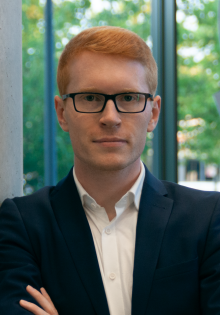Joint project "FlexLabQuartier" researches climate-neutral supply in OWL
Using climate-friendly energy efficiently often presents cities and municipalities with major challenges. The reason for this is that the generation of electricity from renewable energy sources must match typical consumption patterns. For example, photovoltaic systems have a higher output during the day and in the summer months, but energy consumption increases early in the morning and in winter. This is where the joint project "FlexLabQuartier", in which scientists from Paderborn University are involved, comes in. In three model real-world laboratories in Borchen, Bielefeld Sennestadt and Verl, research will be conducted over the next few years into energy-optimised neighbourhood solutions that are as climate-neutral as possible. The project is being funded by the state of North Rhine-Westphalia and the European Regional Development Fund (ERDF) with a total of 2.2 million euros over a period of three years.
Focus on the acceptance of innovations
"Our project is caught between technological innovations, ecological targets, and social requirements. On the one hand, complex energy systems need to be planned and managed efficiently, while on the other, acceptance – among all stakeholders – needs to be created and the needs of citizens taken into account," explains Paul Hahn, research assistant in the field of Management-Information Systems & Operations Research, and member of the project team. The scientists are using data-based decision support systems to run through various scenarios. What is the impact of using additional heat pumps? When is it worth expanding storage capacities? The individual scenarios must be designed in such a way that several objectives, such as climate protection and economic efficiency, are taken into account in a balanced manner and feasible solutions are created.
One example is the optimised operational planning of heating networks. Here, energy from combined heat and power plants, storage facilities and renewable sources is combined in such a way that both operating costs and emissions can be reduced. Manual planning processes are often no longer sufficient for the operation of complex energy systems. "Without data-driven models and intelligent systems, an efficient energy transition at neighbourhood level would hardly be conceivable," says Hahn. According to him, it would also not be possible without a holistic approach that also includes political, regulatory and acceptance-related criteria.
Close cooperation is evident in real-world laboratories
The transfer of knowledge is achieved through close cooperation with local authorities, municipal utilities, supply companies and citizens. In the real-world laboratories, the participants work together to test how decision-making systems can be integrated into everyday planning and control systems. Hahn: "The real-world labs serve as inspiration for us to identify specific problems in the process flow." Feedback, acceptance studies and practical tests also flow directly into the further development of the models.
One of the biggest challenges remains the political and regulatory framework conditions. "Not every potential that we identify in our models can be realised immediately. But we are laying the foundations for making the cities and neighbourhoods of tomorrow more sustainable and efficient," concludes Hahn.
This text was translated automatically.



